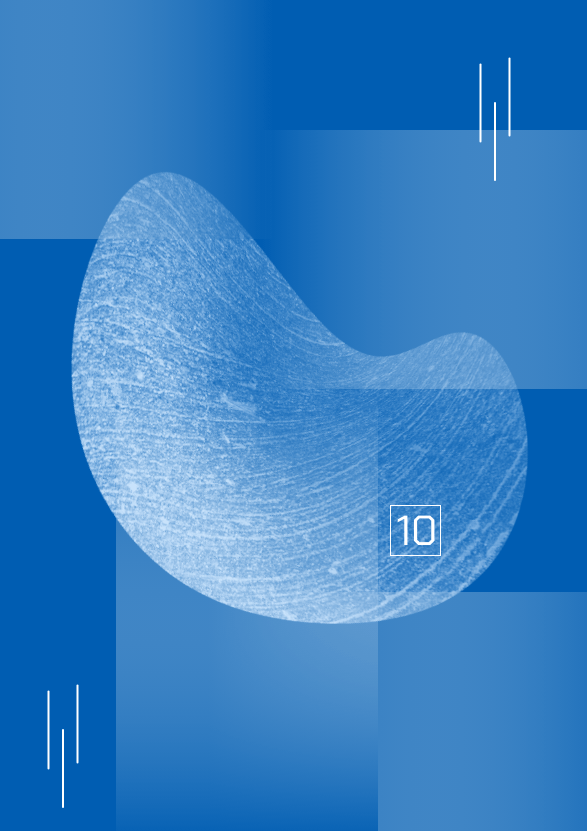

VLOPs, DSA, Data Knowledge Hub – Newsletter #10
Julia Tegeler
Hello and welcome to Issue #10 of Upgrade Democracy News!
Do you also know this feeling? Grand announcements sound promising at first, sometimes even hopeful. But when it comes to implementation, reality often catches up quickly. In recent weeks, I have observed with a mix of hope and skepticism the announcements of many Very Large Online Platforms (VLOPs) such as Instagram or YouTube regarding their specific measures for complying with the Digital Services Act (DSA). As of August 28, 2023, the first obligations of the DSA have become mandatory. However, it seems that the implementation of the announced measures is still lacking, as you can read in Cathleen’s latest blog. A recent study by the EU Commission on countering Russian disinformation highlights similar problems: Most VLOPs had already signed a Code of Practice to combat disinformation in June 2022, committing to a wide range of measures that could have limited Russian disinformation. However, the study concludes that VLOPs have not implemented these measures at a systemic level. This is regrettable because the regulations themselves have the potential to curb disinformation, if consistently enforced.
In this context, it becomes clear how important it is for researchers to consistently monitor platforms. This can help verify compliance with the DSA and uncover shortcomings. Esteemed actors such as CeMAS, Democracy Reporting International, the SPARTA project at the University of the Bundeswehr Munich, or the Institute for Strategic Dialogue are already doing excellent work in this regard. However, the multitude of digital platforms and the vast amounts of data pose a significant challenge. That’s why we – specifically Cathleen and Charlotte – along with the mentioned and other established actors, have created the Data Knowledge Hub, which is launched today, on September 14th! The hub serves as a knowledge and hub point for monitoring online discourse, where you can find codes for researching TikTok, X, and other platforms, for example. More information and the link to the hub can be found below.
But this is not the only milestone we’ve reached in the project this week. Today, our Foresight process begins. Together with experts from civil society, academia, politics, business, and media, we are looking to the future and examining the challenges and opportunities it holds for democracy. Over the next few weeks, we will develop scenarios and derive recommendations for future-oriented policy-making. I’m already excited about the results.
In recent weeks, I have been primarily advancing the preparation of our pilot project and am looking forward to starting practical work in October. Together with our partners, we aim to enhance citizens’ information literacy and develop and implement effective and innovative information, education, and awareness offerings. Our recent study, “Disinformation: A Challenge for Democracy,” has underscored the importance of anchoring competencies and strategies for dealing with disinformation throughout the population, in addition to forms of regulation and social media monitoring.
That’s it from me for today. As always, you will find links to our latest blog posts below, as well as some interesting reading recommendations.
Warm regards,
Julia
Very Large Online Platforms Declare Compliance with the DSA – Researchers Should Verify This
Blogpost – Since August 28, 2023, very large online platforms such as Facebook, Instagram, YouTube, or TikTok are required to adhere to the new obligations under the Digital Services Act (DSA). Almost all platforms have publicly announced these adjustments, but what is the status of the practical implementation of these announcements? Cathleen shares her thoughts and findings in her blog. You can read her post here: Blogpost
Data Knowledge Hub for Monitoring Online Discourse
Blogpost – On September 14th, our Data Knowledge Hub went live! The Hub provides a central resource for researchers, social and data scientists, journalists, and other practitioners, as well as policymakers interested in monitoring social media and online discourse more broadly. It is hosted as open source and made available on GitHub under a Creative Commons license. It continually welcomes contributions of new data, code, and written content to foster a collaborative environment for all. Learn more about it here to Data Knowledge Hub
Transformation of Public Sphere – Risks for Social Cohesion” – Weimar Talks 2023
Blogpost – A vibrant and functioning public sphere is one of the cornerstones of our democratic society. Over the past two decades, this public sphere has undergone rapid transformation. What risks does this pose to social cohesion and the sustainability of democracy? Representatives from politics, academia, culture, and media discussed this question at this year’s Weimar Talks – a discussion forum organized by the German National Foundation in collaboration with the Bertelsmann Foundation, the city of Weimar, and the Klassik Foundation Weimar. Kai has summarized the key insights from the discussion in his blog article. You can read it here in German: Blogpost (DE)
Foresight Process: The Future of the Digital Public Sphere and Challenges for Democracy
Blogpost – All too often, politics and society are preoccupied with solving past problems in the present, rather than addressing the demands of the future today. A focus on the opportunities that lie ahead is often neglected. This requires ideas and visions that can serve as catalysts for policymaking. To achieve this, we have assembled an interdisciplinary group from the fields of technology, media, politics, research, and civil society. The group, together with Cathleen, Charlotte, and Kai, will analyze how digital technologies could potentially reshape the democratic public sphere over the next 10 to 15 years. You can read more about that in the new blog article by Kai and Charlotte: Blogpost (DE)
Reading recommendations
Digital Services Act – Application of the Risk Management Framework to Russian Disinformation Campaigns, Publications Office of the European Union
The study by the European Commission examines the containment of Russian disinformation over the course of a year since the outbreak of the war in Ukraine, assesses the previous implementation of containment measures by major online platforms, and analyzes how the rules of the Digital Services Act (DSA) can be used to counter Kremlin disinformation campaigns.
To the study
Musk’s New Twitter Policies helped spread Russian Propagange, E. U. says. Washington Post by Joseph Menn, September 1, 2023.
The article refers to the above-mentioned study by the European Commission and analyzes the role of X (formerly Twitter) in spreading Russian propaganda about Ukraine.
To the article
AI will change American Elections, but not in the obvious way. How Polarisation inoculates Americans against Misinformation, The Economist, August 31, 2023.
The Economist explores the role of AI in the context of elections.
To the article




